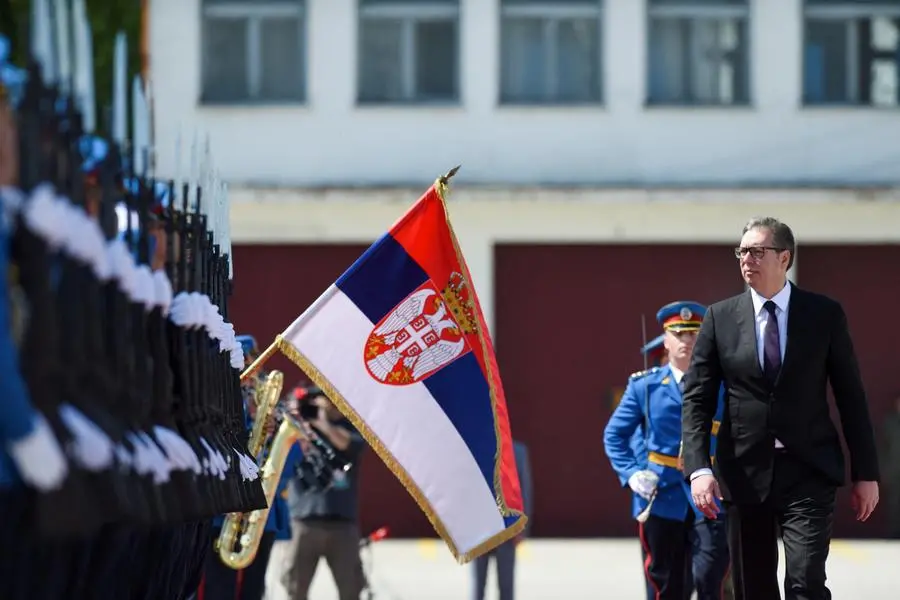PHOTO
Serbia wants to boost defence industry cooperation with France, and is still seeking to buy Rafale fighter jets, President Aleksandar Vucic said on Thursday, in a further sign of Belgrade's shift away from Russia as an arms supplier.
Vucic said he will discuss the cooperation with French President Emmanuel Macron during a visit to France scheduled for April 8.
"One of the topics will be the special purpose industry and the cooperation of our special purpose industries," Vucic said, referring to defence industries, during a televised government session.
Serbia, a candidate to join the European Union that has one of the largest militaries in the Balkans, still relies on Soviet-designed aircraft, such as MiG-29 jets and MI-35 helicopter gunships, alongside Russian missiles and tanks.
It also bought Chinese anti-aircraft missiles and combat drones.
The country remains militarily neutral, but it joined NATO's Partnership for Peace programme, tailored for countries which do not aspire to join the Alliance.
Serbia has already purchased Airbus H125M helicopters and transport planes, Mistral surface-to-air missiles and Thales radars.
Belgrade is also seeking to bolster cooperation with Airbus via maintenance and the development of the H125M helicopters in Serbia and potential a joint production of a combat drone.
"We will speed up cooperation over Airbus helicopters," Vucic said.
In January, Vucic said that Serbia will spend around 740 million euros ($803.20 million) on new military equipment in 2024.
Belgrade is continuing talks on the procurement of 12 Rafale fighter jets from France's Dassault, Vucic said.
"We are determined to buy new aircraft ... that would significantly improve our combat capabilities."
Last year Vucic said that the price for the jets was estimated at around 3 billion euros.
Belgrade curtailed military co-operation with Moscow after Russia invaded Ukraine and has condemned the invasion. But unlike the EU and other Western countries, it has not imposed sanctions on Moscow.
Serbia's military budget amounts to around 2% of gross domestic product (GDP).
($1 = 0.9213 euros) (Reporting by Aleksandar Vasovic; Editing by Jane Merriman)





















